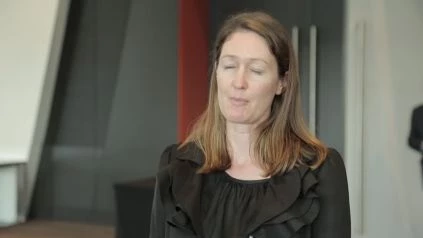Nicole Kiss, PhD, Adv APD of Peter MacCallum Cancer Centre, Melbourne, Australia discusses the significance of nutrition to lung cancer patients. In particular, patients with non-small cell lung cancer (NSCLC) stage III or more, or patients who have in-concurrent chemotherapy with their radiotherapy treatment are more likely to need nutritional intervention during their treatment. Typically, patients develop acute radiation esophagitis, therefore weight loss and malnutrition start becoming apparent. Dr Kiss mentions results from a pilot study looking to see whether more intensive dietary counselling, tailored specifically to the patient would be more effective. Results showed beneficial outcomes. Dr Kiss discusses a possibility of a larger randomized controlled trial of the intervention, to establish its effectiveness in a broader group. Patients with more advanced cancer (stage III or more) and who are having concurrent chemo-radiation, should be under the management of a dietician early in their treatment, to make sure their nutritional status is maintained throughout that time. Dieticians recommend a high energy, high protein diet through treatment. The take home message is that weight loss is very prevalent in cancer patients and it needs to be identified and addressed early for the best outcomes. Recorded at the Multinational Association of Supportive Care in Cancer (MASCC) and International Society of Ocular Oncology (ISOO) 2016 Annual Meeting on Supportive Care in Cancer held in Adelaide, Australia.
[the_ad id="32629"]

